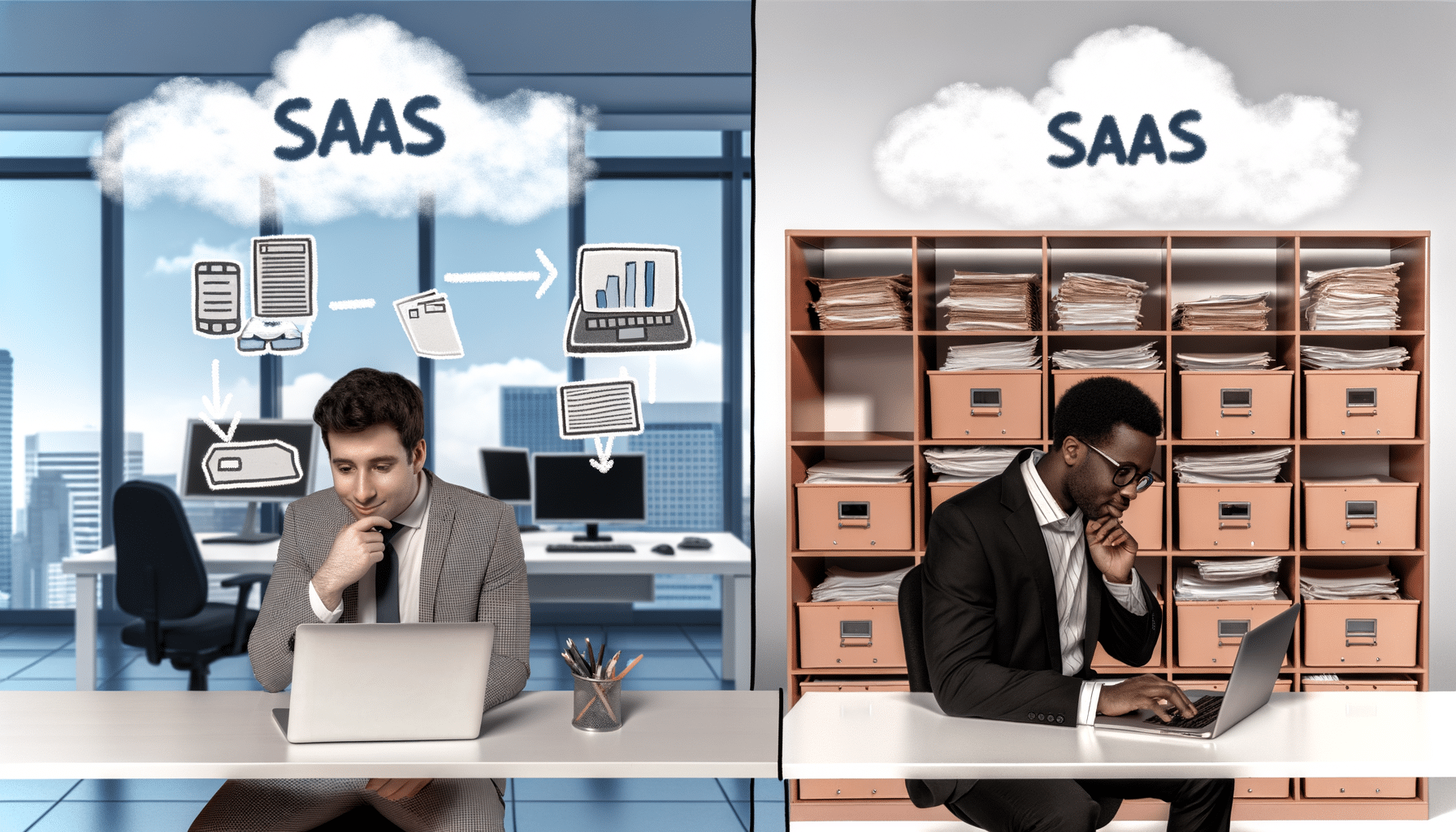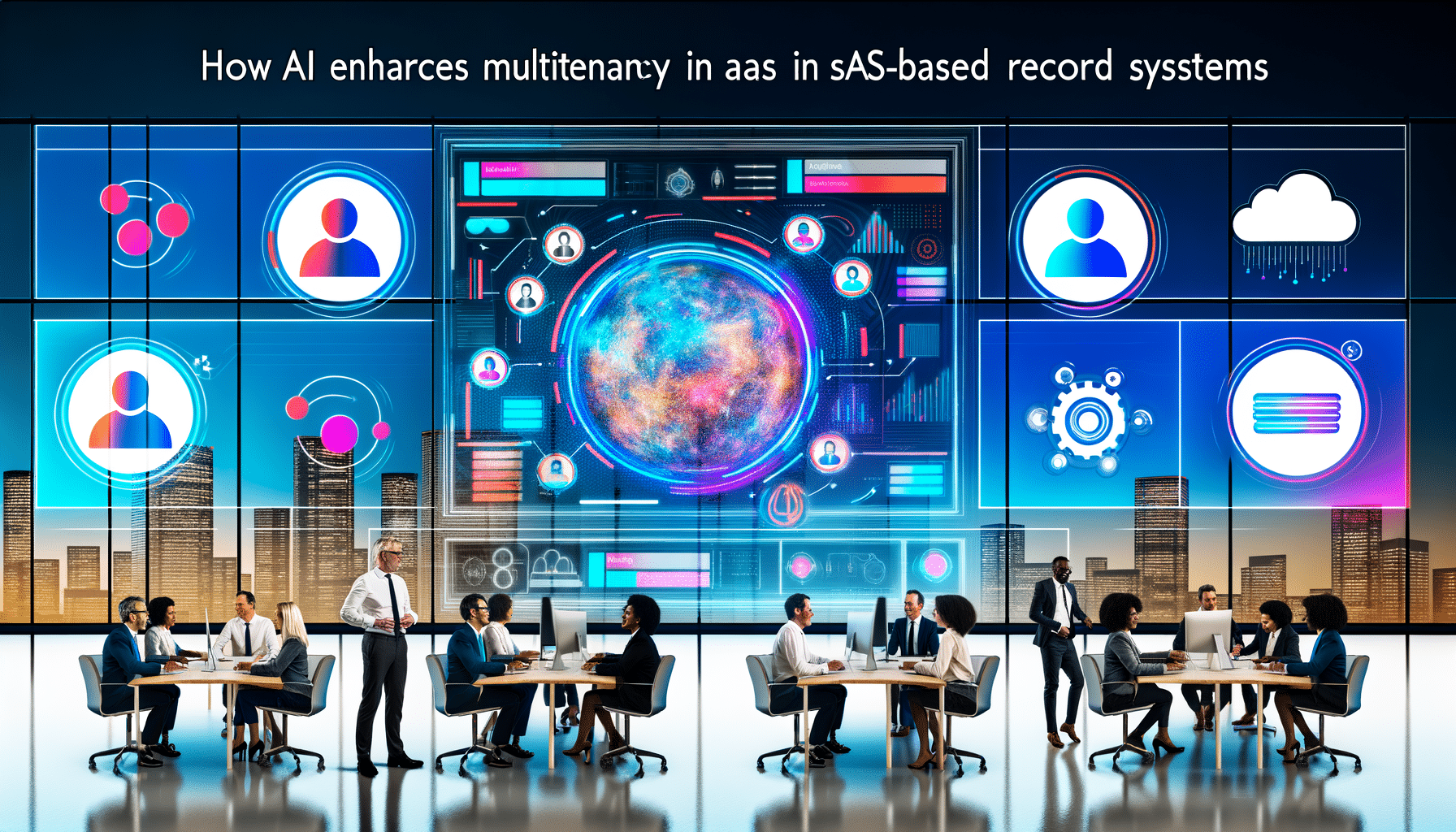- SaaS
- September 21, 2022
SaaS vs. Traditional Record Management Systems: Which is Better?

Demystifying Record Management: SaaS vs. Traditional Systems
In today’s fast-paced digital world, efficient record management is not just a necessity but a strategic advantage for any organization aiming to stay ahead. As a professional deeply involved in developing groundbreaking solutions for record management, I constantly encounter the pivotal question: Should businesses opt for SaaS platforms, or stick with traditional record management systems? Let’s delve into this topic, highlighting key factors and providing insights to aid your decision-making process.
Understanding the Core Differences
On the surface, both SaaS platforms and traditional record management systems aim to achieve the same goal — efficient organization, storage, and retrieval of records. However, their execution methods differ significantly.
SaaS Platforms
- Cloud-Based: SaaS solutions operate on a subscription model, hosting data in the cloud. This approach offers unparalleled accessibility as you can manage records from anywhere, at any time, using any internet-connected device.
- Scalability: As your business grows, the SaaS model allows you to scale with relative ease, upgrading or downgrading services as required.
- Automatic Updates: SaaS platforms provide automatic updates, ensuring users have the latest features and security enhancements without manual intervention.
Traditional Record Management Systems
- On-Premise Setup: Traditional systems require physical infrastructure on company premises. This can mean greater initial costs and ongoing maintenance expenses.
- Limited Scalability: Scaling up a traditional system usually involves hardware purchases and installation, which can be cumbersome.
- Control: Companies retain full control over their data with traditional systems, sometimes making it the preferred choice for those with specific compliance needs.
Security Concerns and Compliance
In record management, focusing on security is paramount. Traditional systems allow for enhanced control, which some argue provides better security. However, advanced SaaS platforms integrate cutting-edge security measures like encryption, multi-factor authentication, and blockchain technology, offering robust data protection.
SaaS solutions can also streamline compliance with laws such as GDPR and HIPAA. For instance, RecordsKeeper.AI uses AI-driven compliance workflows to ensure adherence automatically, reducing the burden on legal and compliance teams.
Cost Implications
Cost is often a deciding factor. Traditional systems generally entail significant initial outlays for hardware and setup, followed by ongoing maintenance and upgrade costs. Conversely, SaaS platforms operate on a subscription model, typically presenting lower upfront costs. This pay-as-you-go structure allows for more predictable budgeting, often proving more cost-effective in the long run.
User Experience and Accessibility
The modern workforce demands flexibility, and SaaS platforms naturally cater to this with superior accessibility. The ability to log in from anywhere accelerates processes, allowing teams to collaborate effectively regardless of geographical divides.
Traditional systems may fall short in this arena, often restricting access to on-premise users. SaaS platforms, with their user-friendly interfaces, promote quicker adoption and facilitate ease of use across diverse teams.
Customization and Innovation
Another area to consider is the ability for customization and innovation. While traditional systems might offer customization to suit specific needs, SaaS platforms shine by constantly evolving with cutting-edge features and integrations.
At RecordsKeeper.AI, we prioritize innovation, creating tailored solutions that leverage AI and blockchain to transform how record management is perceived — from a burdensome task to a strategic asset. This adaptability and progression are particularly advantageous in dynamic industries needing quick pivots and updates.
Conclusion: Choosing the Right Solution
The decision between SaaS and traditional record management systems hinges on your organization’s unique needs—evaluating factors like scalability, budget, security, and user experience. Reflecting on these aspects, SaaS solutions often emerge as the more flexible and forward-thinking choice, especially for businesses seeking agility and ongoing innovation.
While traditional systems have their strong points, the ease of access, cost-effectiveness, and continuous enhancements offered by SaaS platforms like RecordsKeeper.AI position them as game-changers in the world of record management.
For organizations on the cusp of digital transformation, embracing SaaS can prove invaluable. For further insights and tailored advice on record management solutions, I welcome you to follow my journey and explore how RecordsKeeper.AI can cater to your specific requirements.
Toshendra Sharma is the visionary founder and CEO of RecordsKeeper.AI, spearheading the fusion of AI and blockchain to redefine enterprise record management. With a groundbreaking approach to solving complex business challenges, Toshendra combines deep expertise in blockchain and artificial intelligence with an acute understanding of enterprise compliance and security needs.
Related Posts

How AI Enhances Multi-Tenancy in SaaS-Based Record Systems
Discover how AI optimizes multi-tenant SaaS environments for record systems.
- June 23, 2023

Blockchain as a Service (BaaS) for Record Keeping
Explore BaaS solutions for efficient record management in organizations.
- January 24, 2023
Archives
- January 2025
- December 2024
- November 2024
- October 2024
- September 2024
- August 2024
- July 2024
- June 2024
- May 2024
- April 2024
- March 2024
- February 2024
- January 2024
- December 2023
- November 2023
- October 2023
- September 2023
- August 2023
- July 2023
- June 2023
- May 2023
- April 2023
- March 2023
- February 2023
- January 2023
- December 2022
- November 2022
- October 2022
- September 2022
Want to get more content like this?
Signup to directly get this type of content to your inbox!!
Latest Post
Document Control for Equipment Maintenance
- January 20, 2025
Managing Records for Multiple Clients
- January 19, 2025
Handling Conference Documentation
- January 18, 2025
Setting Up Department Record Reviews
- January 17, 2025





